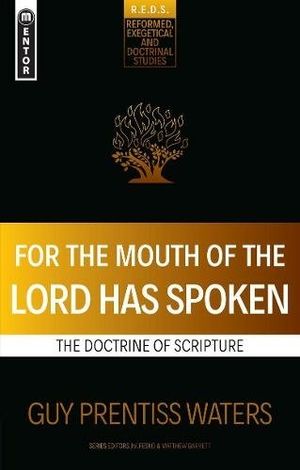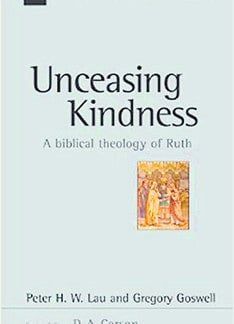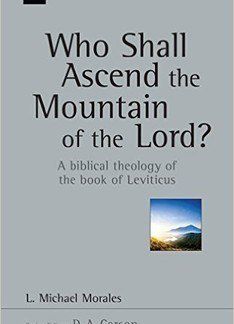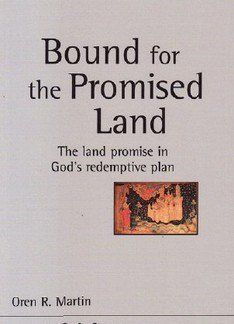The new bishop of Durham, N. T. Wright, unlike the infamous Bishop Jenkins who once occupied that prestigious post, is no liberal Anglican. He is an internationally respected scholar who actually believes in the bodily resurrection of Jesus. Nevertheless, Tom Wright has become something of a controversial figure in conservative evangelical circles over the past ten years – because of his views on justification.
Some have made wild and inaccurate accusations while others have been cautiously favourable toward his views. Wright has recently produced a masterly commentary on Romans, the culmination of years of study that began with research for his doctoral dissertation at Oxford.
His basic position on justification, which he has expressed in scholarly as well as popular works, has not changed. But it is useful to see the way he handles passages in an epistle that deals with the subject at some length. It is therefore mainly from this commentary that we shall consider his position.
A new perspective
Before examining Wright’s views, we must understand something of the background to his insights. He readily admits that he has been influenced by some seminal works that have questioned traditional Protestant (and especially Lutheran) interpretations of Paul.
One such influential study spoke of the need to free our thinking from the Western preoccupation with guilt and to view Paul’s theology not in individualistic terms but in the context of the history of redemption.
There is truth here we need to take on board. But it must not be used to drive a wedge between God’s purposes for the world through Israel and the quest of guilty sinners to be forgiven – and brought into a right legal status before the God whose law has been broken.
Another study has argued that traditional views of Judaism in the period prior to the fall of Jerusalem are wrong and that we have misunderstood the New Testament’s responses. Instead of thinking of the Judaism of Paul’s day as a legalistic, meritorious religion, we are encouraged to believe that it was a religion of grace.
The Jews already enjoyed a special relationship with God by being born into the chosen nation. Obedience to the law was therefore not something they did to earn their way into God’s favour. Keeping the law was an expression of their relationship and enabled them to maintain that relationship.
Works and the Law
Protestants of the Reformed tradition have generally believed that the religion of Moses and the Prophets was not a works-oriented religion. In so far as Jews in the days of Jesus and his apostles conformed to the faith of Moses, then their religion was not based on meritorious works – as Romans 4 and Hebrews 11 demonstrate. Such people as Simeon and Anna and Timothy’s mother and grandmother are examples of godly men and women whose faith rested in the promises of God and not in their good deeds.
But to suggest that in New Testament times there were no self-righteous legalists among the religious rulers and their followers is going beyond the evidence. Further study of the extra-biblical literature of the period has shown that there were Jews who considered obeying the law to be meritorious and contributed toward their final salvation.
The New Testament itself is witness to this attitude as we see from Luke 18:9 where Jesus addressed ‘some who trusted in themselves that they were righteous, and despised others’.
It is important to challenge these ‘ground-breaking’ studies because so much is made of them in the new perspectives or insights into Paul’s theology.
Wright on justification
Tom Wright is correct to see justification as a law-court metaphor, but for him the basic background to justification is the covenant language of the Old Testament.
He therefore believes that while justification is God’s declaration that those who believe are in the right, what this really means is that they are declared to be ‘God’s true covenant people’. He is adamant that justification is not about how individuals are accepted by God but about how the people of God are defined.
Using Wright’s own words again, justification is not about ‘getting in’ to God’s family but the assurance that one ‘is in’. It is ‘not how God makes someone a Christian, it is his righteous declaration that someone is already a Christian’.
This declaration is made, not as the Jews of Paul’s day thought by wearing the Law badge, but by wearing the badge of Christian faith. The faith that Jesus is Lord defines God’s covenant people. Faith is the badge that reveals that status (but what does Wright mean by faith?).
In Paul’s order of salvation, Wright observes, effectual calling precedes justification (Romans 8:30). Effectual calling is associated with the work of the Holy Spirit in regeneration and conversion, enabling the sinner to turn and believe.
Justification is not about the moment of change, argues Wright, but is the verdict after the change. Furthermore, this justification anticipates the verdict on the day of judgement.
As for imputed righteousness, Wright maintains that it is not about Christ’s perfect obedience being reckoned to the believer.
It is not about Christ ‘amassing a treasury of merit’ through obedience to the Law. Righteousness in this context is not moral goodness but the status of being righteous. Christ’s obedience to God’s commission has given believers the status of being righteous.
Is he right?
Is he right? We must give a ‘yes and no’ answer. Yes, justification is a legal declaration made by God in anticipation of the verdict on the day of judgement. But no, it is not a declaration that a person is a member of God’s covenant family.
We must insist that covenant membership is one of the resulting blessings of justification – it does not define it. It is significant that Wright avoids speaking of justification as acquittal, of declaring sinners to be not guilty.
He does speak (more than he used to) of God’s forgiveness but it is almost as an afterthought because in the overwhelming number of cases where he defines justification, his main point is that justification is God’s declaration of covenant membership.
Without ignoring or in any way down-playing the importance of God’s covenant with Abraham, we must do full justice to Paul’s language in Romans 4. Paul speaks of the God who ‘justifies the ungodly’ and of God reckoning righteousness to a person and not reckoning sin.
Wright however dismisses too readily these book-keeping and law-court metaphors, insisting that what matters is ‘the covenant’.
Faith and justification
Furthermore, before describing faith as ‘the badge’ of covenant membership in the way that Wright does, it is essential to see faith as the empty hand that receives God’s covenant promise. Faith, as defined in the Gospels and by Paul, is that self-despairing trust in the Christ who died for the ungodly.
Wright does not mention this because (for one thing) he does not see Paul’s statement of justification against the background of a person seeking to earn ‘righteousness’ by moral effort. His understanding of faith is quite different. For Wright, faith is our belief in – and loyalty to – the risen Jesus as Messiah and Lord of the world.
Wright’s desire to set Paul’s thought in the context of the flow of salvation history, particularly the relationship between Israel and the Gentiles in God’s covenant purposes, is admirable. But it has led him to downplay the broader issue of a person’s relationship with God.
Wright’s reply is that if we accept what he is advocating, then the matters emphasised by the Reformers (such as how an individual sinner can be right with God) are thrown in for good measure.
But this will not do. As we read Romans it speaks to every man and woman personally of their desperate plight, as well as corporately to the privileged Jews and pagan Gentiles.
Wright believes that Christ died our death and that as a result of Christ’s obedience to God’s commission, ‘the many’ are given the status of being ‘righteous’, just as Adam’s disobedience gave ‘the many’ the status of being ‘sinners’.
But he does not believe in Luther’s ‘wondrous exchange’. He argues that to ‘reduce Paul’s thinking about the cross to terms of a law court exchange is to diminish and distort it theologically and to truncate it exegetically’.
He is wrong to use Romans 8:30 to separate conversion from justification in the way that he does. The human response to God’s summons involves faith in Christ. But it is precisely the faith that trusts Christ for salvation that is the instrument of our justification.
Justification is not a declaration of a fait accompli on the basis of the ‘badge’ of faith that God sees. Rather, it is the very act of acquittal in which guilty sinners are pronounced not guilty – in which they are given a free pardon and a righteous status on the basis of Christ’s righteous life and atoning death, when they rest on Christ alone.
Why should we be concerned?
1. Wright’s pronounced stress on the covenant, and his clear acceptance of the biblical emphasis on God’s work in our salvation, make it easy to see why Wright’s understanding of justification appeals to Reformed Christians. But it is precisely because of this that he presents a threat to the evangelical Protestant Faith.
2. According to Wright’s definition, justification is no longer a part of the gospel. For him the gospel is the announcement that the crucified and risen Jesus is Lord of all, with the divine summons to turn from present allegiances to this Lord and Messiah.
3. Sin does not have the place it should have. This is due partly to the fact that Wright confines the law to the Jewish context. But it cannot be limited in this way for Paul can speak to former pagans and say that the ‘sting of death is sin, and the strength of sin is the law’ (1 Corinthians 15:56).
4. Though he speaks of God’s wrath, and the cross as the place where God’s wrath is propitiated, he backs away from the thought of Christ receiving the punishment that sinners deserve.
5. Wright’s teaching shifts the focus away from our position before God to our position in the church. It is not so much about our legal standing in God’s sight but of our status in the covenant community.
6. If Wright’s definition is accepted, then the one great stumbling block between Protestants and Roman Catholics is removed at a stroke. Justification would no longer be the article of faith that judges practices that deny the sufficiency of God’s grace in Christ.

















